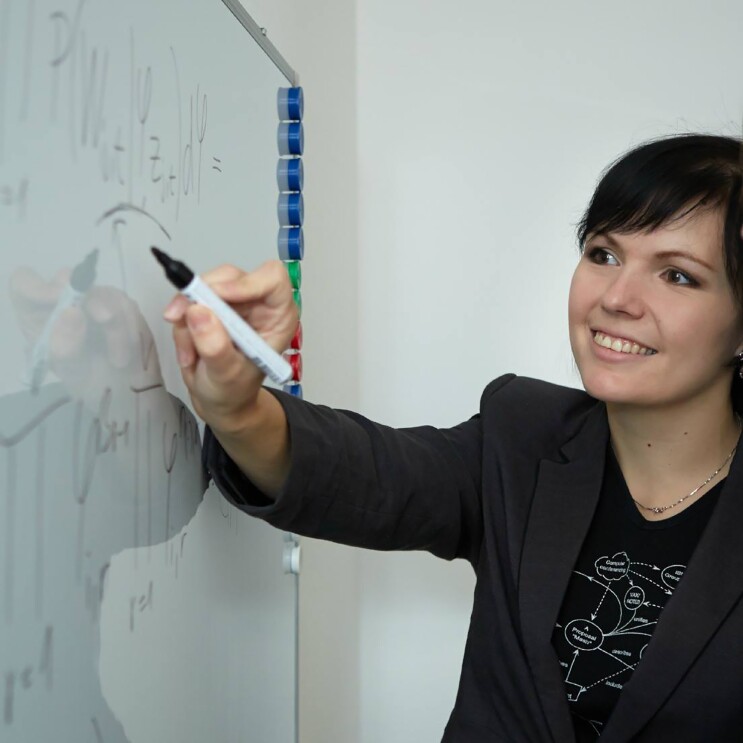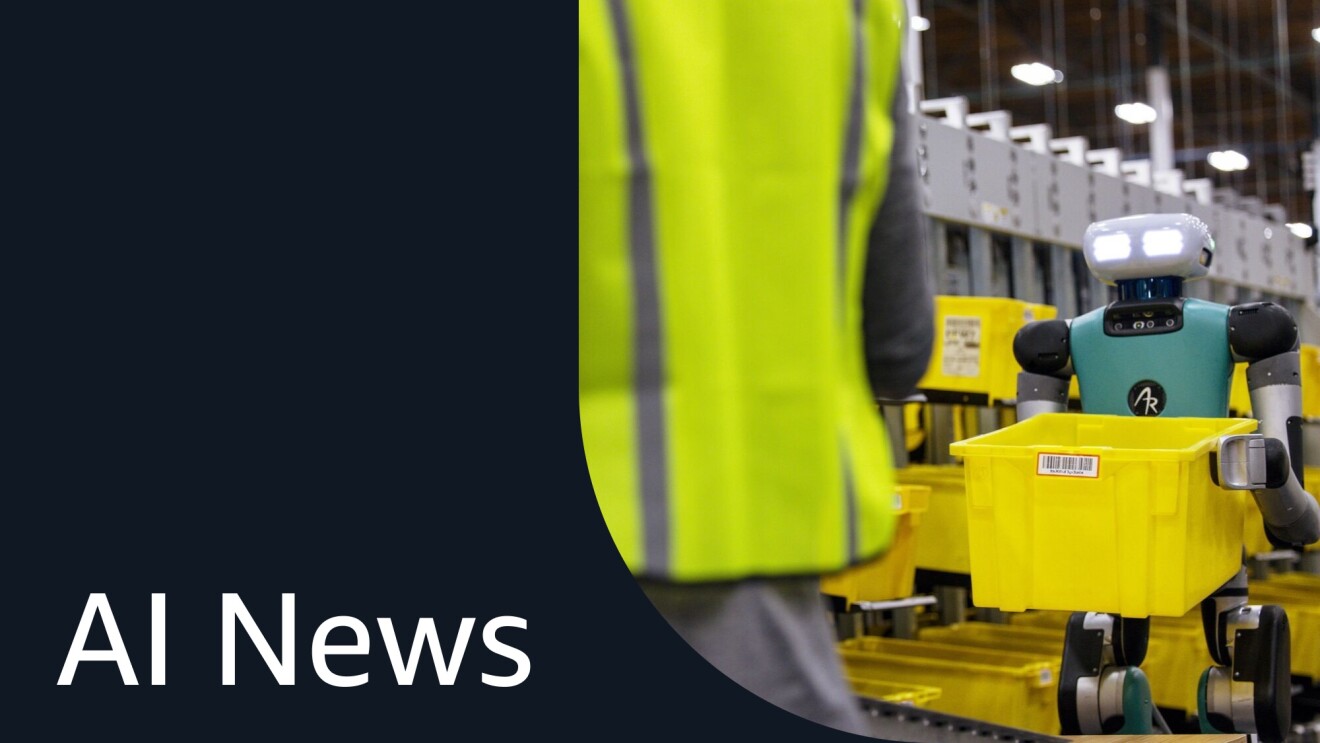At this year’s meeting of the North American chapter of the Association for Computational Linguistics, Amazon is a gold-level sponsor of the second annual Widening Natural-Language Processing workshop, whose goal is to support women and underrepresented minorities working in the increasingly popular field of natural-language processing (NLP).
Two Amazon scientists — Lucie Flekova and Amittai Axelrod — were on the organizing committee, which was led by Princeton postdoc Libby Barak and also included Carnegie Mellon’s Diyi Yang and the University of Sheffield’s Zeerak Waseem. Flekova is a technical program manager for the Alexa AI group; Axelrod is a machine-learning scientist working onAmazon Translate, a language translation service.
“There’s been a public call for participation, but Amittai and I didn’t even know about each other at the beginning,” Flekova says. “We were both selected by last year’s committee. We were very surprised when we learned about each other.”
 Lucie Flekova, technical program manager for Alexa AI group
Lucie Flekova, technical program manager for Alexa AI groupThe workshop takes place on Friday, June 1, before the main conference (NAACL) and comprises a full day of invited talks, panels, mentoring sessions, and research papers.
“We are trying to help people identified with underrepresented groups get better visibility for their research,” Flekova says. “We want to build a community and support inclusion, to help people to connect to a support network. For example, we try to find mentors and to pair people with senior researchers and industry orgs to discuss career development options, like how can they get more visible, get the right things into their C.V.”
“Last but not least, it’s about funding,” Flekova adds. “Getting from central Africa to the U.S. is much, much more expensive than getting there from Western Europe. Many students have limited resources to attend this kind of event.”
The workshop’s technical program consists of 53 papers with coauthors who identify as members of underrepresented groups.
“One gets to feel after 15 years or so in research that one has a good handle on the kinds of things that people work on,” says Axelrod, who is from Puerto Rico, and who managed much of the communication with paper authors. “And that’s only partly true: One has a good handle on the kinds of problems worked on by the people we know. And we know pretty much everyone who comes through the normal, established pipelines. The breadth of contributions to the workshop, in terms of the specific problems that other people think are interesting — and that the people we know haven’t even thought to work on — is exactly why that belief of ‘Yeah, I’ve been around and know what the field does’ is a bit limiting.”
Several of the papers consider techniques for extending NLP technologies to languages spoken by low-income populations, while others investigate the application of machine-learning techniques to topics like disability access, cultural sensitivity, and support for victims of sexual misconduct. Six of the papers will be presented during the workshop’s oral sessions, and the remainder are poster presentations.
 Amittai Axelrod, machine-learning scientist forAmazon Translate, a language translation service
Amittai Axelrod, machine-learning scientist forAmazon Translate, a language translation serviceThe 53 accepted papers were culled from 78 submissions and underwent double-blind peer review. More than half of the first authors on the accepted papers are women; 74% are people of color; and 60% live outside Europe and North America.
Interspersed with the workshop’s oral presentations and poster sessions are three invited talks. Jian Su, the head of NLP for Singapore’s Agency for Science, Technology and Research, will discuss “Semantic and Sentiment Analysis for Knowledge Base Population”; Claire Cardie, a professor of computer science at Cornell University will discuss “Information Extraction: What Goes Around Comes Around”; and Natalie Schluter, an associate professor of computer science at the IT University of Copenhagen, will deliver a talk titled “The Glass Ceiling in NLP.”
“We’ve been trying to be really inclusive with the organization of the workshop,” Flekova says. “For example, we worked with the conference hosts on providing babysitting arrangements and a multifaith prayer room. We are trying to arrange virtual remote poster presentations for the authors who could not attend in person. We have to be creative in having alternatives for the program and being sensitive to everyone.”
We are trying to help people identified with underrepresented groups get better visibility for their research.
Lucie Flekova, technical program manager, Alexa artificial intelligence
Beyond the workshop, the Widening NLP (WiNLP) organization has three main goals: to increase awareness of work done by members of underrepresented groups; to support research by members of underrepresented groups; and to advocate for greater resources for members of underrepresented groups within the Association for Computational Linguistics.
Toward those ends, WiNLP has several ongoing projects, including the creation of a directory of NLP researchers who identify with underrepresented groups. “The idea is mostly to make the work of underrepresented groups visible to the larger community, so that conference organizers would be able to use the list to find invited speakers, students could find potential advisors, and all researchers can discuss collaboration opportunities,” says Barak, who’s been part of WiNLP since its inception.
Trending news and stories
- Amazon unveils 7 new robots powering faster, safer deliveries: Go inside our most innovative delivery station yet
- Introducing Vulcan: Amazon's first robot with a sense of touch
- This new AI tech will make sorting packages easier for Amazon's delivery station employees
- How Amazon helps data center communities thrive









